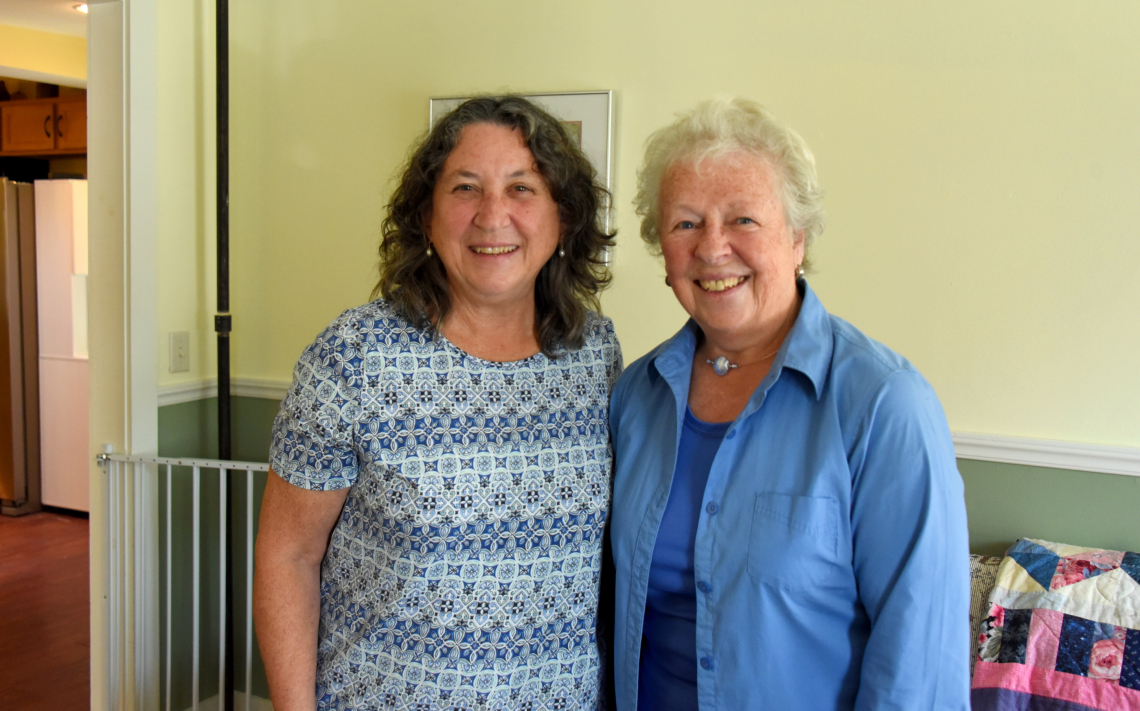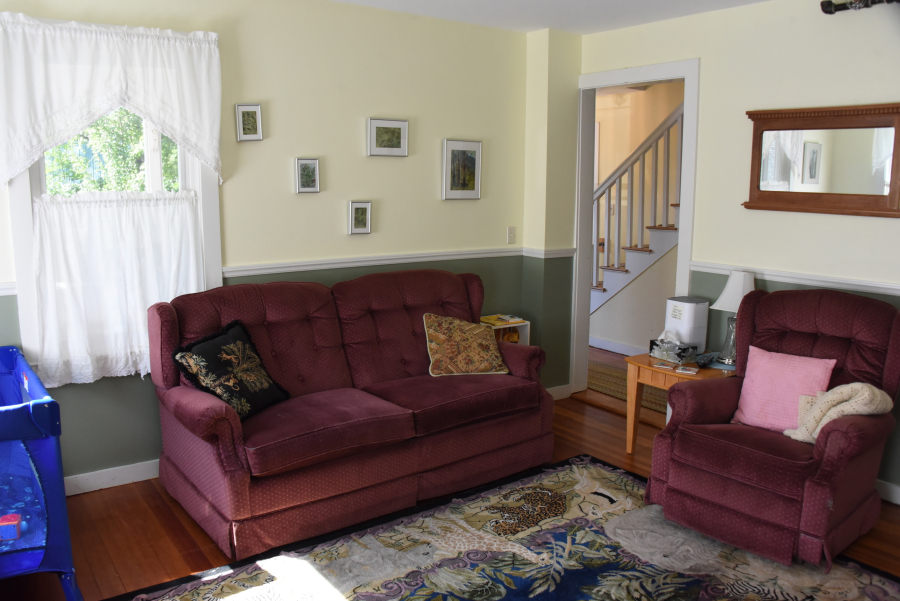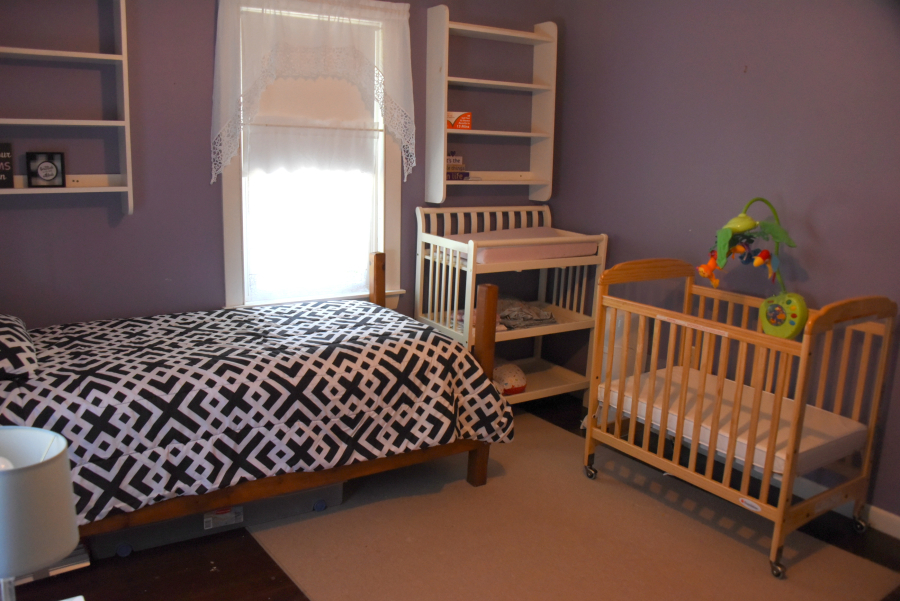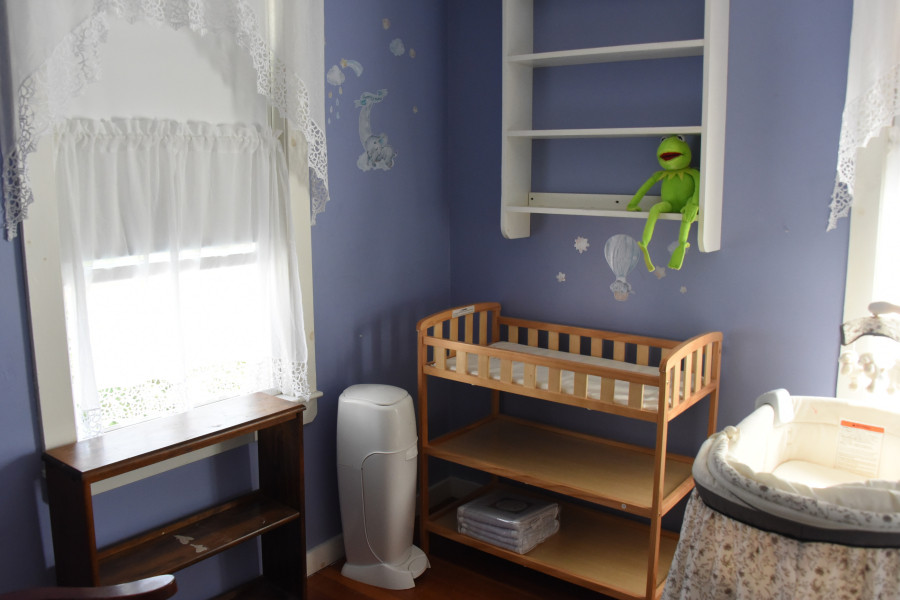Cherishing life by supporting new mothers

Walk into the Mother Seton House in Fryeburg and you will immediately feel a sense of warmth and welcome, and that is something pregnant women and new mothers have been finding there for the past decade.
They always mention the sense of love and warmth in the home, that there is something about the atmosphere,” says Cyndi Broyer, the director. “A lot of our women have lived in extreme cases of poverty, neglect, and abuse, and sometimes they come here, and they’re just, at first, quite overwhelmed by the beauty of it.”
It was really a wonderful experience,” says Samantha Gammon, who stayed at the Mother Seton House with her newborn daughter, Selena. “It taught me that, somewhere in the world, there are actually genuine people who will help you.”
The Mother Seton House (MSH) is a nonprofit organization committed to helping pregnant women and new mothers who find themselves in difficult circumstances. As its newsletter states, “We cherish life by supporting pregnant women, new mothers, and infants in need.”
“We nurture, and love, and support,” says Cyndi.
The Mother Seton House provides that nurturing and support in several ways. It has giveaways during which baby clothing, diapers, and sometimes even items such as cribs, highchairs, and bassinets are distributed. It offers nutritional and educational programs. And it operates a maternity home where pregnant women and new mothers can stay.
“The minute they are pregnant, they can come and stay until their baby is a year old, so in theory, you could be here a year and nine months,” says Cyndi.
The Mother Seton House is run entirely by volunteers. At the maternity home, a group of women sign up for time slots during the day, while two house managers rotate staying there at night.
The home can serve three women and their babies at any one time. Most often, case managers recommend the home to the women. Cyndi says they come from many different backgrounds. Some have challenging or complicated family situations. Some have been in abusive relationships. Others may be in a loving family but live in overcrowded or substandard housing.
“One of our very first women was living in a trailer with 11 people,” says Bonnie Marsh, a board member.
“They were all family members, but there was no room for her,” says Cyndi. “Extreme poverty is an underlying theme.”
Samantha says, in her case, she no longer felt safe in the place she was staying.
“I needed emergency housing right away,” she says. “I just wanted to protect my daughter, and that was really not a place where I could protect her.”
Samantha says a case manager recommended the Mother Seton House, and she was fortunate that Cyndi was willing to take her in on short notice.
“Luckily, she let me come for a two-week trial. I think that is what they do, just to make sure you are a good fit for the Mother Seton House,” she says.
Cyndi says when evaluating women for the Mother Seton House she must take into consideration the other mothers and babies who are there, as well as the volunteer staff. For instance, they don’t accept women who are in recovery because they are not trained to assist them.
While not as strict as some homes, there are rules the women must follow.
“It’s like a 1950s college dorm. The rules are no men, you have to be in at 10 o’clock, and you have to say where you are going. We need to know where you are,” says Cyndi. “It’s restrictive just because it is respectful to the others who live here and the house manager.”
Each of the women staying in the home gets her own room, and when they first arrive, Cyndi sits down with them to create an activity log with goals. She says while maternity homes often have highly structured programs, the Mother Seton House draws up individualized plans.
“We only have three women, so it’s totally individually designed. First, ‘What do you want to do when you’re here?’ ‘Well, I want to get my driver’s license.’ ‘Good, let’s do it. We’ll pay half,’” she says. “Many have gotten their GEDs here. The tutor comes to us in the house.”
Community Concepts has also come in to offer parenting education, while Cooking Matters has held sessions on healthy nutrition. And, of course, there is the experience of volunteers themselves.
“They’re not professionally trained. They’re volunteers, but they are older women who have a lot of wisdom and a lot of stories to share, and you can take things from them and grow,” says Samantha.
Cyndi says at the house, they try to guide through example.
“The biggest thing we say is that we live by example. So, when I come here, I speak respectfully to everybody, and I’m cheerful, and I ask, ‘What can I do for you?’ And I ask, ‘What would you like us to help you do that can help your growth while you’re here?’”
Cyndi says when some women arrive, all they’re trying to do is survive, and that’s fine, too, although as time goes by, she tries to coax them along and help them move forward.
“I think that’s why they feel safe here. That’s why they feel nurtured and loved because we try really hard to not judge and to understand,” says Cyndi. “Some of the people who come here have experienced repeated years of trauma.”
Samantha remembers that when she first arrived, she mainly stayed in her room, hesitant to trust.
“I was willing to do what I had to do but was just really fragile from where I came from, but the volunteers were super, super helpful to me and welcoming to me with open arms. It was almost unbelievable. I thought, ‘This can’t last for long. There is no way these people are this great,’ so I was a little bit cautious about letting them into my life completely, but nothing changed. They are all genuine sweethearts and were volunteering there just to help me,” she says.
Samantha says at the Mother Seton House, she discovered her voice.
Everyone was really open and understanding, so it made me discover my boundaries and my voice all at the same time. That was a really powerful thing that I got,” she says. “I’m not confident that I would have grown so much if I didn’t have the help of Cyndi and the other volunteers.”
Helping women like Samantha is the reason Cyndi and other committed volunteers founded the Mother Seton House 15 years ago.
“I’m the face of it, but there are hundreds behind it, and 10 who have stuck with me through thick and thin, highs and lows, for 15 years,” says Cyndi.
The house got its start at St. Elizabeth Ann Seton Church in Fryeburg, where Cyndi was an active parishioner. She says she had long envisioned building a home for women on the church property, but a pavilion was built on the site she had in mind. During a meeting of the Parish Council, she expressed her disappointment to Father Joseph Daniels, the pastor at the time, who urged her not to give up on the idea.
“He said there is a real need for that,” says Cyndi.
Sometimes when at Mass, Cyndi says she feels on fire with faith, saying, ‘Here I am Lord.’ This time, she says she knew what He wanted her to do. She says she was also spurred into action by the loving challenge of one of the church’s pro-life parishioners.
“Mary McLaughlin asked me this question: ‘What are you going to do when God asks you, “Where were you when they were killing the babies?”’ recalls Cyndi. “I wasn’t into marching. That’s not my thing, but what it comes down to for me is that you just can’t, in my opinion, say, ‘Have the baby and then good luck.’ You have to offer support.”
She says from the beginning, she has felt God working alongside her.
“The deal was, ‘I will do it, God, if you do it with me. And if you don’t, then it’s not going to happen because I don’t know what I’m doing,’” she says.
The chair of the Social Justice & Peace Commission at the time, she brought the idea to the group and invited parishioners to a meeting. She says she was encouraged by the response she received.
“I put out a flyer in August, asking, ‘Anyone want to come and hear about this idea?’ Forty people showed up on an August night. We kept bringing chairs in,” says Cyndi.
The parishioners sought advice from organizations with similar missions, established a separate 501(c)(3) nonprofit, and started to fundraise.
“That was the first thing people said to do. You write a letter to 10 friends or relatives asking for money. Do you think that was easy? I wrote to relatives and friends and said, ‘We have an idea.’ My brother-in-law Bruce has sent us $25/month for 15 years. He just gave it to us. We didn’t even have a bank account. I kept the money in the freezer. Once we opened a bank account, we were giddy, silly. We were so excited,” she says.
The Mother Seton House’s first effort was holding a baby shower for a pregnant woman who needed assistance.
“We had exactly $111.42 or something like that and I bought a port-a crib, and it was to the penny,” says Cyndi.
Over the first five years, there would be more baby showers, along with classes, and clothes giveaways, which continue to be popular today.
“The last time we had one, we had 28 families come from 11 towns, from as far away as Portland and Sanford,” says Cyndi.
Five years in, however, the group took another leap of faith and explored buying a home.
“To get this building, we worked really hard for five years to raise money,” says Cyndi “It was a big sell because it was an idea only.”
They found an old home in need of a lot of work.
“When were first saw it, it had been reduced to $110,000 .Then a few days later, it was $105,000, and then, it kept going down, and then, it went on auction,” says Bonnie.
Knowing the Mother Seton House didn’t have the resources to buy it or get a mortgage, Bonnie used the equity in her home to buy it herself. While Cyndi saw the risk involved, Bonnie was determined.
“I said, ‘The worst that can happen is that we clean it up and sell it, and at least we break even,” says Bonnie.
“That is the kind of faith people had and continue to have in this,” says Cyndi.
Bonnie successfully bid on the home, saying she even received a little guidance from the auctioneer on just how much she should spend.
“So, Bonnie writes to me and she says, ‘I just bought the house.’ And I said, ‘Bonnie, do you know what day it is?’ She said, ‘January 4.’ I said, ‘It is the Feast of St. Elizabeth Ann Seton.
To say the house needed a little work was an understatement, but board member Gene Bourque and the Knights of Columbus came to the rescue, with help coming from councils in both Maine and New Hampshire.
“All became interested in not only supporting us financially but with groups of men coming over to the house, taking out an above-ground pool that had holes in the bottom of it, taking care of the chimney situation, repairing some walls, painting,” says Gene.
Gene, who shares a passion for the house’s mission, also worked to line up contractors including plumbers and electricians,
“I began to realize that, yes, this is something that is lacking in our area, and we can provide this service. So, let’s get into it. Let’s get it done and let’s get it done right, so everybody is going to be secure, safe, and in a healthy environment,” he says.
Through the years, there have been many people like Gene and Bonnie committed to the mission of the Mother Seton House, including the parish community, members of other Christian churches, and community organizations.
“Being nearby and having a connection with Mother Seton House affords parishioners the opportunity to put our Gospel values in action, caring for others, supporting mothers in need and their children,” says Father Edward Clifford, pastor of St. Joseph Parish in Bridgton, which includes St. Elizabeth Ann Seton Church.
Cyndi says she is grateful to all who have helped and, most especially, to the Knights of Columbus, who hold baby bottle drives around Mother’s Day and Father’s Day to support the house.
“I call them my St. Josephs,” she says.
Through the years, the Mother Seton House has helped 26 women. While Bonnie says not all are success stories, most are. One of their early residents, for instance, is now going for her doctorate, and Samantha is happily settled in her own two-bedroom apartment.
“Selena is growing, and she is healthy because she got to grow up in such a kind environment with all the ladies and the mothers and all the community in Fryeburg,” says Samantha. “I am so beyond thankful for their help and their kindness, and all of them really did it out of the pureness of their hearts. It’s unbelievable almost.”













